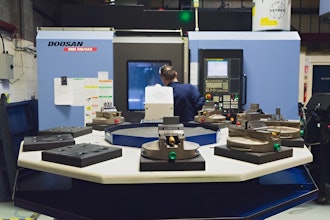With the rapidly expanding pace of today’s connected technology, manufacturers need to have a solid handle on all elements impacting the supply chain and distribution channels. Accuracy and reliability in these fields are key and often come from the use of material requirements planning (MRP) tools that connect products to processes. MRP takes data from manufacturing requirements and integrates it with inventory to help manage the purchasing of materials and shipping schedules of products. As manufacturers can often get lost in features and functions of software and forget about backend support, MRP tools ultimately help manage the ROI of producing goods by linking the economics of material costs, sales demand and distribution.
While MRP has been in existence for a while, strong MRP systems integrated with enterprise resource planning solutions deliver three primary functions that are proving to be invaluable to manufacturers today:
- Assists manufacturers to guarantee sufficient materials are available for production — this also ensures customer orders are fulfilled properly.
- Reduces waste so that users can maintain the lowest possible number of products in stock
- Schedules manufacturing functions, and manages raw material purchases and forecast purchasing trends
MRP systems provide valuable information to a number of individuals throughout an organization. Production planners and managers, both of whom are responsible for balancing workloads and scheduling work, rely heavily on MRP. Plant foremen use MRP to issue work orders and oversee production schedules. Even customer service representatives, who serve as a direct line from the manufacturer straight to the consumer, can benefit from the supply chain visibility endowed by MRP.
It’s clear that, on paper, a powerful MRP system is crucial for manufacturers in today’s competitive landscape. Now let’s take a look at some real-world case studies to explore the tangible benefits of this technology.
Enabling Growth
As it grew its services and offerings to a global scale, Aiphone Corp. USA, a Japanese-based intercom systems manufacturer, needed a way to help its company scale at a reasonable pace. With more complex market integration becoming a reality, the company needed a way to predict interruptions, dissect data in real-time and streamline the sales process. After implementing an MRP solution, the company became more agile in its day-to-day functions and gained deeper insight into production analytics.
Scott Antes, CIO at Aiphone Corp. USA said, “We’ve doubled our sales and product output and have gained the ability to predict and adjust to future process interruptions.”
MRP was an ideal solution that leveraged data to be more efficient, yet adaptable to accommodate ever-changing conditions that companies experience during significant growth stages.
Inventory Alignment with Customer Demand
For over 35 years, aftermarket automotive parts manufacturer COMP Cams needed a way to streamline its operations as its market expanded rapidly. The company required new IT solutions that would offer a clear view of historical data to accurately project how much inventory they will need in the future. By implementing an MRP solution, it experienced a significant increase in inventory maintenance, accuracy and performance. The MRP solution is utilized by 100 percent of the company allowing it to react much more rapidly to changes in customer demand.
"We play the role of both manufacturer and distributor, so the challenges we face and prepare for to meet customer demand are unique," said Scott Miller, Vice President of Procurement at COMP Cams. “The MRP solution provides total inventory visibility, which leads to fewer resources invested in products that sit on shelves and, ultimately, improved customer service. We use the MRP solution daily to schedule everything from manufacturing the packaging to developing the finished goods. The powerful forecasting technology has resulted in increased purchasing by as much as 25 percent in some areas so that we are able to always meet customer demand."
Without the help of MRP solutions, many businesses in the manufacturing industry would have redundancies throughout their inventory processes resulting in tied up capital and increased financial risk. Through the use of MRP, inventories are not only effectively managed but companies are able to streamline operations to not only save money over time, but foster growth opportunities with better production alignment to customer demand and reduced inertia in the manufacturing process.
Pete Zimmerman is a North American Software Sales Manager at VAI.






















